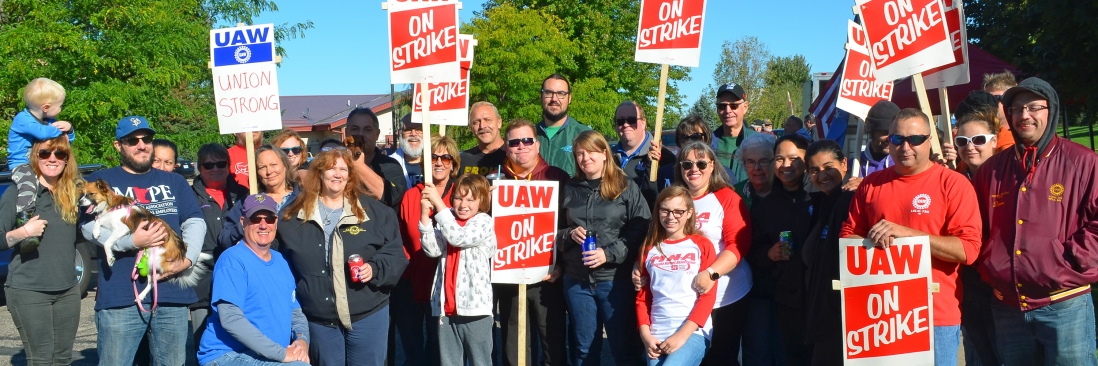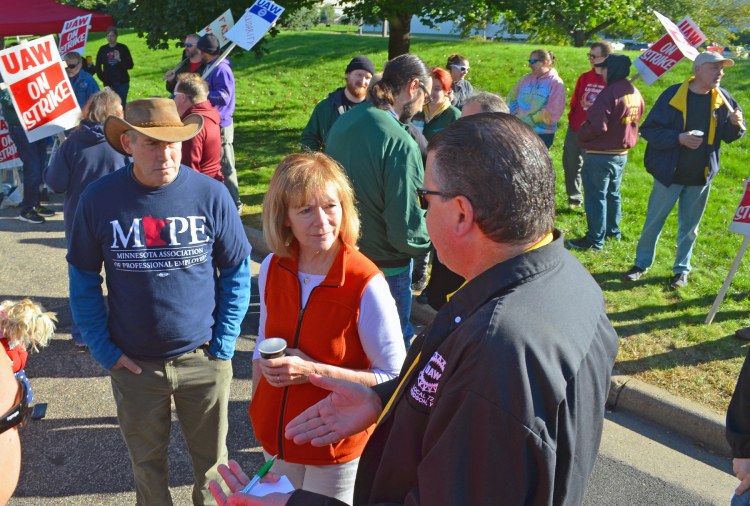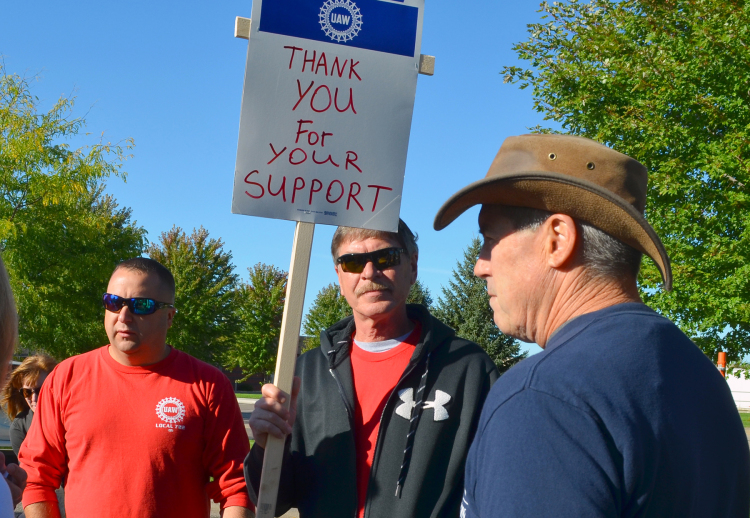
Michael Moore. St. Paul Union Advocate.

Share
After two weeks on the picket line outside General Motors’ Hudson, Wis., facility, members of United Auto Workers Local 722 are still standing together as their international union seeks a fair deal in nationwide contract talks with the automaker.
A big reason why workers have been able to hold the line, Local 722 President Jennifer Grabczyk said, is the support they’ve seen from members of other unions, particularly those based in the Twin Cities.
“We were very worried about how long we could sustain everybody and keep everybody’s spirits up, but with all these people coming in every single day, it helps so much,” Grabczyk said. “It’s been amazing.”

Striking workers got a boost Saturday from U.S. Sen. Tina Smith. On the first day of the Senate’s two-week recess, the Minnesota Democrat traveled to Hudson to stand in solidarity with UAW members, who are fighting not just for themselves, she said, but for all working people.
“They’re fighting for the basic principle that people should get paid equally for equal work,” Smith said. “I think that’s really important.”
GM’s use of temporary workers has emerged as a major sticking point in contract negotiations, as has the system of wage tiers, which allows GM to compensate union members differently depending on when they were hired. Autoworkers hired since 2007 are paid on a lower scale than so-called “legacy workers,” and temporary workers are paid even less, with fewer benefits and no formal process to become permanent employees.
The UAW agreed to those concessions in 2007, when GM was on the brink of bankruptcy.
Now, with an assist from a federal bailout in 2009, GM is more profitable than it’s ever been. The company has reported $35 billion in profit over the last three years, and CEO Mary Barra last year took home $22 million in total compensation.
Steve Frisque, a Local 722 steward who lives in Woodbury, said workers haven’t forgotten the sacrifice they made to keep GM alive, even if the company’s executives have.
“This company has made record profits the last four years, and they got there with help from two sources – their employees and the taxpayers in this country,” Frisque said. “And the thanks they show the taxpayers and employees is to ship more and more work to Mexico, more and more work to China.”

Frisque and Grabczyk are legacy GM workers, but both identified the issue of equal pay as their top priority.
“You are standing next to somebody for 60 or 70 hours a week, and they’re doing the same exact job as you,” said Grabczyk, who works in inventory control. “It is not OK to know that they are struggling.”
“They have families,” Frisque added. “They want to buy houses. They want to partake in the American dream. That’s what the union was founded on – equal pay for equal work.”
Local 722 represents about 75 workers at the Hudson parts distribution center, which serves dealerships across the Midwest. All workers who are eligible to join the local have done so, Grabczyk said, even though Wisconsin is a right-to-work state. And no members are crossing the picket line.
GM relocated the parts distribution facility to Hudson from Edina 15 years ago, and many workers still make the commute from Minnesota. Now the drive has become familiar, as well, to union members and supporters answering the call for solidarity.
“This is what happens when you’re in a collective movement like the labor movement,” Smith said. “You fight for each other, not just for yourself.”
The GM picket line in Hudson is active 24 hours a day, seven days a week, and supporters are always welcome to walk in solidarity with striking workers. The facility is located at 2200 Willis Miller Drive.

